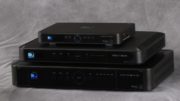Going on a trip? Canada, Mexico, and the Caribbean await. But once you get done sightseeing, you might want to settle in for some television. Maybe the local fare’s not for you… so what do you do? Internet service may be too expensive due to roaming charges. Here’s an idea: bring your home DVR with you, connect a dish to it and watch US TV. There’s only one problem: it doesn’t work.
Why doesn’t it work?
There are so many problems with this it’s hard to know where to start. First of all there’s the issue of satellite coverage. US satellite companies are bound by law to only cover the US with as little overlap as possible into other countries. Even if everything else were to fall into place, you probably couldn’t get reception unless you were under 100 miles from the US.
So, you say, just bring your DVR with you. Forget live programming. If you are in a country where the TVs are relatively similar (like Canada) this would work for a few days. However, without the ability to check in via phone line or internet, and without a satellite line, the receiver would soon lose its authorizations and become unusable until you returned it back home. This is done on purpose to make sure that there is no piracy going on.
One more thing to consider… it’s illegal. You could be stopped at the border going in or out with any electronic device not designed to operate in a foreign country. It’s pretty unlikely that the border patrol is going to bust you for an unlicensed DVR, but fear of getting caught isn’t really the issue here. The issue is that it is against the law and at some level that has to mean something.
But does it work?
Here’s something we don’t talk about much. Satellite beams can be focused, but not to an incredible point. In order to cover all of the people on the borders with Canada and Mexico, the signal is going to drift into those other countries to a degree. It’s also going to drift out to those Caribbean island nations close to the US. I will say that is against your satellite contract to take the stuff to another country. I don’t honesty know if it’s against any other country’s laws to operate it, and in order to understand why, we have to ask…
Can you use US satellite equipment in other countries for their service?
Can you buy it here and take it there? This is something that we’re frequently asked at Solid Signal, and sadly the answer is also no. In some countries it’s illegal to operate it, but in most cases what you’re dealing with is importation.
Every country has its own satellite licenses. The receivers, dishes, and other hardware have to be designed for it. There isn’t a “universal” receiver. Parts like splitters that have no real electronics can be shared but that’s about it. So if you brought a DIRECTV US receiver into Mexico, for example, you can’t use it for Sky Mexico.
But what if you wanted to bring it into Mexico for the purpose of using it for US DIRECTV? Let’s say you had strong enough signal, and you managed to get the thing past customs. Every country has their own version of the FCC. In the case of Mexico, it’s the Instituto Federal de Telecomunicaciones (IFT.) They must approve every electronic device that’s permanently intended to stay in Mexico. They’re not going to bother you if you travel there as a guest and bring a hair dryer. No one is. But in theory at least they aren’t going to approve a DIRECTV satellite receiver. The same is true with Canada and most countries. Some of the small island nations rely on FCC certification, but that’s still really not the point.
It comes down to, you agreed you wouldn’t do it. Maybe no one ever figures out that you’re doing it, maybe they do. Maybe you don’t care. As a US business and one of the largest satellite dealers in the world, we have to care.
It’s a fine point. We can explain it further.
If you’re looking to use US satellite equipment on your boat or near the border, call us. We can explain what can and can’t be done. We’re here for you at 888-233-7563 during East Coast business hours. If it’s after hours, fill out the form below. We’ll get back to you, usually within one business day.





